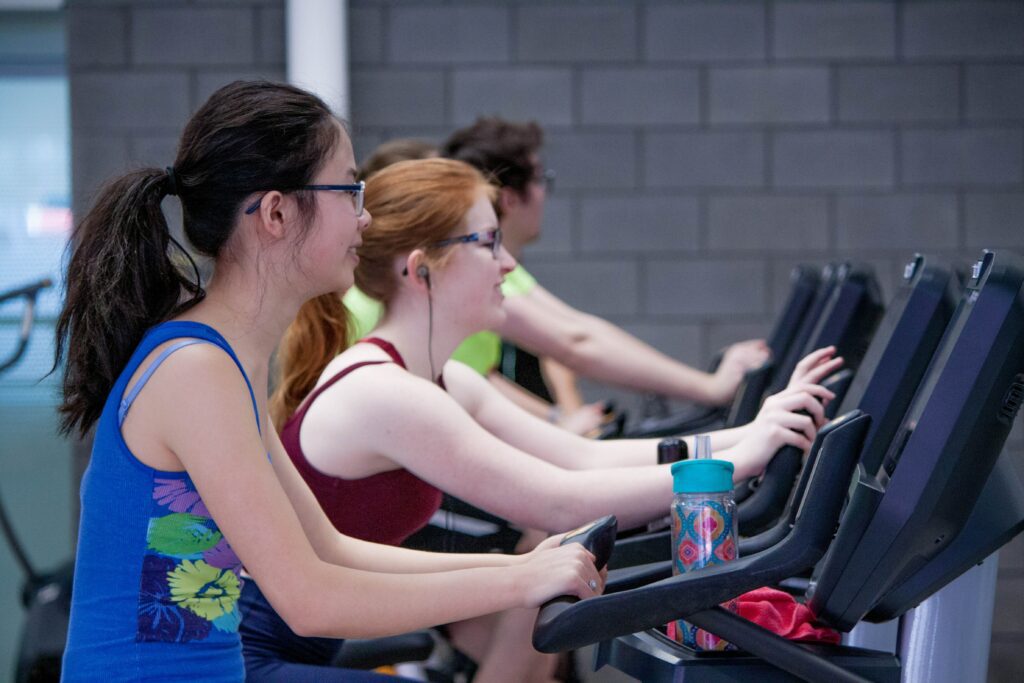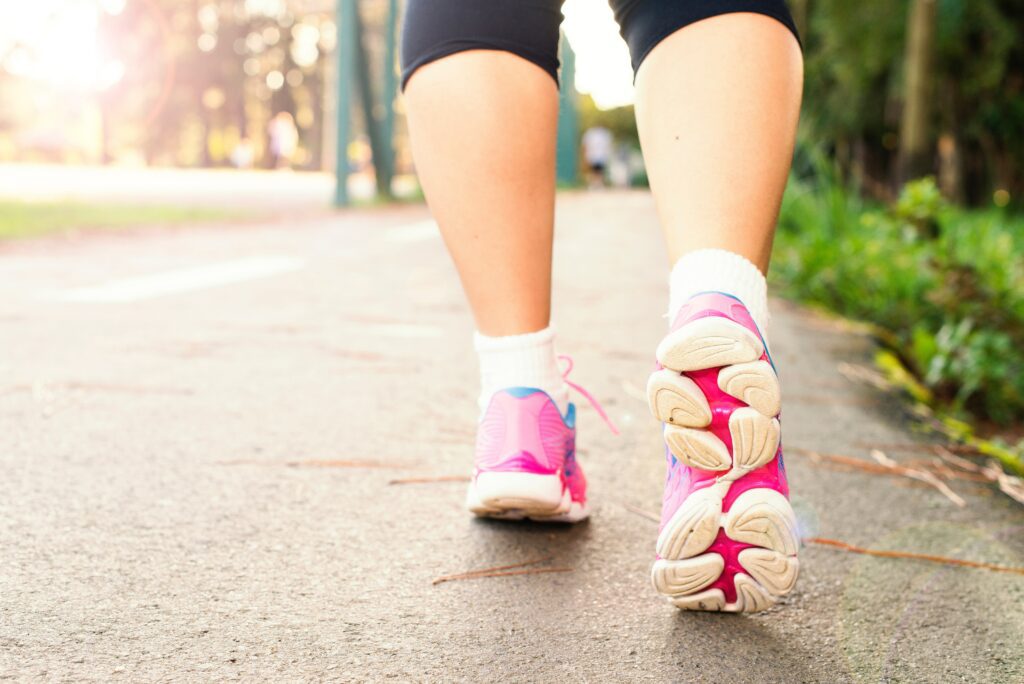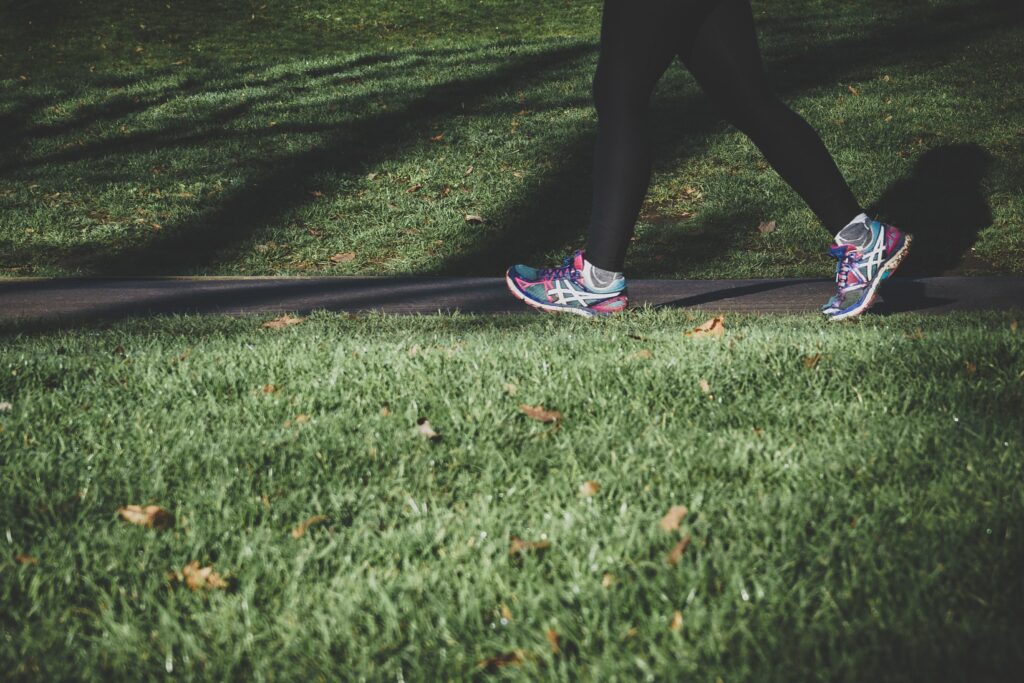Every doctor recommends exercise or physical activity. However, not all patients find it easy to incorporate this into their daily life. Most people have busy schedules, long hours sitting in their jobs, plus other obligations at home that keep them from joining a gym or even following workout tutorials on the internet. But, taking up walking as exercise can bring people the benefits they’re seeking in more demanding physical activity.
Why walking as exercise?

The first thing you might be wondering is why should you even consider walking over other physical activities. You might not even see walking as exercise. Many think of walking as boring or not demanding enough to see changes in their health. Nothing is further from the truth.
Walking is essential for the human body. We were made to walk, it is engraved in our DNA, humans have a nomad past, it is one of the first things we learn as we develop, and it shows in the benefits of walking. The way our body starts working when we walk shows just how much we can benefit from this simple exercise. When we walk, our joints lubricate, the heart rate increases to a comfortable rhythm to get oxygen to every muscle and the nervous system relaxes.
It all happens in the simple act of walking. This is why walking is an excellent exercise. It is an activity we all know how to do, you don’t need any special equipment or space to do it, and the positive impact is outstanding. Walking as an exercise is also easy to incorporate into your daily routine.
If you can’t picture yourself taking away a specific time of the day to simply walk, you can start walking more by making it a part of your daily life. Here are some ideas for you to walk more each day:
- Take the stairs instead of the elevator
- When you’re running errands nearby, try walking instead of driving
- If possible, try walking to your office, job, or school
- If you take public transportation, you can get off a stop early and walk the rest of the way to your destination
Maybe, after you get used to walking in your daily life, you can start doing it as an exercise. You could pick a specific time of day to keep a routine that suits you, as you would with any other sport or physical activity. Here are some tips so you won’t get bored of walking as an exercise and you will continue to do it every day:
- Walk different routes and places. You might get tired of seeing the same sights every day, so you might want to walk through other streets of your neighborhood or even go to a park or forest area sometimes.
- Walk the dog. Dogs love exercise and walking benefits their health as well. A dog can be a great motivation to start walking every day. However, don’t jump into adopting one if your lifestyle doesn’t allow you to. You can walk a friend’s or neighbor’s dog.
- Walk with your friends. With any kind of exercise, it is a good idea to have a group to encourage you to go on, walking is not an exception. Agreeing to take a walk with a friend every day can help you feel compromised to do it. You could even join a team and meet new people who are searching for the same health benefits as you.
Benefits of walking as exercise
As mentioned from the beginning: walking as exercise poses several health benefits. Most of those benefits are the same as in any other kind of physical activity but it is easier to do and incorporate into everyday life. The more you walk, the more benefits you’ll see. The following are some of the most prominent and interesting health benefits you can get from walking more every day.
Can walking help you lose weight?

The short answer to this question is yes. One of the most common and noticeable effects of walking is that it reduces the amount of fat in the body. Just like with any other kind of exercise, walking for at least 30 minutes can help you lose weight. However, you must do it consistently and keep a healthy diet for it to see this effect.
Walking helps you lose weight because physical activity helps you burn calories. How many calories will you be burning from walking for 30 minutes? It all depends on your weight and your speed. If you walk for 30 minutes at a pace where you feel comfortable but still wouldn’t be able to talk too much (or sign for example), is usually a sign you’re walking at a good enough pace for weight loss.
If you want to increase the number of calories you’re burning in your walk, there are things you can incorporate to make it more challenging for your body:
- Try walking uphill
- Use weights in your wrists and ankles
- Walk for longer periods (add a few minutes at a time)
- Walk longer distances (also go little by little with this)
- Pick up your pace
All of these will make walking as exercise more challenging. If you want to know more about how to calculate calorie burn and how to burn more calories while walking, check this other article: How Many Calories Do You Burn While Walking?
Strengthen your heart and lungs

As it happens with any physical activity, walking can help improve lung capacity and heart health. When we move our bodies, our heart rate goes up and our lungs expand. This makes them more resistant and will make them work better. Why do we want them to work better? To prevent disease.
A healthy and strong heart is more unlikely to have high blood pressure, meaning that the cardiovascular system is less prone to a stroke. Walking makes our heartbeat raise to comfortable levels for it to function above the ones it is used to when at ease. The heart is a muscle, this continued elevation in heart rate makes it strong to keep on working without problems throughout our life.
The same thing happens with the lungs. We need to bring more oxygen in when we’re walking as exercise. That is why our lungs expand more than when we’re just sitting. This increase in capacity helps to bring oxygen to every part of our body. A well-oxygenated body stays young and working in good conditions for longer. It also keeps the lungs strong to resist infections.
The lungs gather the oxygen and the cardiovascular system is the one that distributes it through the body. That is why keeping the heart and lungs in good health benefits every muscle and organ in our body.
Improve your memory

If you struggle to focus or to retain information, walking can also help you with that. It might sound unbelievable but walking also poses benefits to the health of your brain.
Life in cities can be exhausting. Offices rarely have any greenery and the landscape is filled with concrete, buildings, and cars. In most cities, the sky is also too polluted for it to be blue or to see the stars at night. Being in touch with nature is essential to humans, it enriches our lives by providing relaxation.
Being in nature is as primal for humans as walking. That is why mixing the two of them poses so many benefits for mental health. The University of Michigan has conducted studies about this.
“Berman decided to test that theory by sending study participants on walking routes around Ann Arbor. Participants walked on an urban route down main streets and also on a route in U-M’s Matthaei Botanical Gardens and Nichols Arboretum, taking in nature. When participants walked in the Arboretum, they improved their short-term memory by 20 percent…” says the article written by the University of Michigan Going outside—even in the cold—improves memory, attention
This shows that walking can be very beneficial to your physical health and mixing it with walking through nature can bring even more benefits. When you walk as exercise, try to incorporate routes that go through nature to make the most out of it.
Better your mobility

We have already mentioned that walking helps to keep your heart and lungs healthy and that they keep your muscles and organs strong. On top of those benefits, walking as exercise also helps to keep your joints, muscles, and bones strong.
Walking helps to keep your body strong. Movement makes your muscles, bones, and joints more resistant. The constant exercise helps them to stay in good shape but also to endure more and to age well.
Walking as exercise helps to grow our muscles. It is not possible to gain the same muscle by walking as with weight lifting, but there is undeniable muscle gain. It is especially noticeable when the legs gain tone. This muscle gain happens in all our bodies, even if it isn’t as prominent. This muscle gain can help to have better mobility. It also helps to prevent muscle loss as we grow older.
Movement requires for our joint to be well lubricated. Walking promotes the production of the liquid that keeps our joints moving. How we shit our weight in each step, the movement of our ankles and knees helps to keep our joints in better health. That is why walking can also ease the pain that comes with arthritis.
Finally, walking as exercise makes our bones stronger. Just as it happens with muscles, our bones benefit from the movements involved in walking. It has been proven that walking can reduce the risks of osteoporosis.
Combining the benefits walking gives to the muscles, bones, and joints, we can say that walking as exercise will help improve our mobility. Having better mobility will reduce stiffness and pain, it can also help us to stay active throughout our life.
Stay in a good mood and boost your energy

Taking up walking as exercise can do more for us than just keeping our organs in good health. Some studies who that walking can also improve other aspects of our lives. Just as walking through nature can help with memory, walking, in general, can help with our mental health.
People who walk in the morning tend to get a good amount of vitamin D, which helps them to feel more awake. Walking in the morning might help you to be more alert than drinking coffee. Also getting extra oxygen helps to feel more alert as well as relaxed to tackle your day.
Getting sunlight also helps to boost the production of endorphins. Walking helps to reduce levels of cortisol and promotes the production of happy hormones. That is why walking in the morning can also help you feel happier.
Taking a bit of time from your day to walk can be beneficial to your mind. You can also use that time to entertain your imagination or reflects on things that have been troubling you. That way you will be gaining all the benefits of physical activity plus giving your mind the hormones it needs and the time to be creative and at ease.
Conclusions

Walking as exercise poses many benefits to the mind and body. It is an easy way to stay active and give your body the movement it naturally needs to stay healthy. Walking promotes lung and heart health, which are vital organs that keep the rest of the body working. Joints, bones, and muscles, strengthen with the movements made while walking. There are also mental health benefits in walking since physical activity promotes hormones involved in happiness and it is also a time to think and unwind. Walking through nature poses superior benefits since it also improves whort term memory. There is a lot to gain from walking, you can incorporate it into your daily life until it becomes your preferred form of exercise.
If you liked this post you might also enjoy reading:


